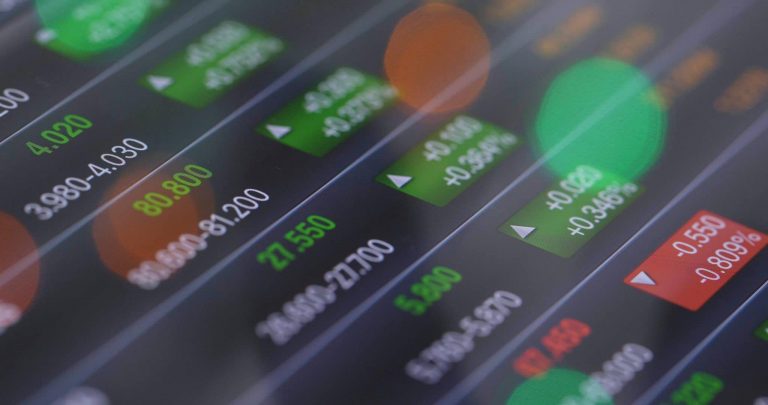The month of September 2021 has once again justified its bad reputation, being historically he worst month of the year for the stock markets.
S&P -4.8%; Dow Jones -4.3%; Nasdaq -5.3%; STOXX 50 -3.6%; Ibex -0.5%
The main focuses of attention of investors have been the following:
- Collapse of the Chinese real estate company Evergrande Group. Since it cannot meet its obligations due to its excessive leverage, it will be necessary to pay attention to how much and how the Chinese government and Evergrande's negotiations with its creditors intervene. In my opinion, despite the large size of the company, although it may have a certain impact on the real estate sector of the Chinese economy, in no case will it be the trigger for a global systemic crisis. The current context has nothing to do with that of 2008. Nothing to do with Lehman Brothers.
- Tapering and interest rates, pending inflation. This point will continue to be one of the main headaches during the coming months due largely to supply chain problems, labor shortages, and comparative effects (vs. 2020, the year of the pandemic). We will have to keep an eye on the next data to see if it is definitely a temporary inflation and it is relaxing. It seems logical that the intervention of the Central Banks decreases (tapering) as we move towards a “normalization” of the economy. In relation to interest rates, according to the Fed meeting that took place in the middle of the month, these will continue in the target range of between 0% and 0.25%, beginning to rise 0.25% between 2022 and 2023. These economic policies ultra-accommodative are an oasis for companies.
- Confrontation in the US Congress to reach the following agreements:
- The Government's provisional financing plan to avoid its administrative closure, which, as happened in 2019, would have cost many millions. On the last day of the deadline (October 1), Republicans and Democrats reached an agreement that will allow them to have funds until at least December 3.
- Increase in the debt ceiling, so that the Treasury can continue issuing bonds and bills to finance itself, avoiding a debt crisis. Historically, despite disagreements between the parties, they have never allowed the US to do default, so let's hope the result is the same this time before the deadline (October 17).
- Approval of the infrastructure plan and the consequent increase in taxes for its financing. Surely, in the end a plan of around $1 trillion will be approved, an amount much lower than what Joe Biden initially intended.
- Slowdown in American growth due to Delta variant. While it is true that the latest data related to the American economy have been below expectations and have worsened the outlook, the Fed's latest growth forecast projects annual growth of 5.9%, the highest in 37 years.
- Problems in supply chains. It is key that bottlenecks be resolved to satisfy the rapid growth in demand and relax inflation. Since October, unemployed citizens in the US have stopped receiving aid checks from the Government, which will encourage many to return to work. This will help meet the high demand for personnel that companies are facing and consequently, relieve tensions in supply chains. We will see it over the next few months.
In a month of high volatility such as September, the VIX (volatility index of the American market, also known as the fear indicator) has almost reached the level of 29, subsequently returning to below 19 in a matter of days. To contextualize, when the VIX is below 20, it indicates that the market is stable and investors are calm, confident and with a greater appetite to buy and/or hold shares. On the contrary, when it is above this level, nervousness predominates and the sale of shares increases. Exceeding 30 indicates very high volatility.
When there is fear or panic in the market, stocks with greater volatility and/or greater risk are sold, in favor of more defensive bets in the face of uncertainty. A large number of investors are not able to withstand this type of volatility, which results in aggressive movements that occur in the market. Likewise, they tend to buy shares at peaks due to the FOMO (“Fear Of Missing Out”) and sell at the lowest points due to the FUD (“Fear, Uncertainty and Doubt” – fear, uncertainty and doubt).
Additionally, if we add that in 2021 we are “getting used” to greater calm in the markets, we become more fragile. Corrections, although no one likes them, are frequent, necessary and also part of bull markets, so I suggest taking them as a purchasing opportunity rather than as a crash that I like to mention so much.
In my opinion, The current outlook is still very bullish for the stock markets due to:
- Accommodative monetary policies with an environment of ultra-low interest rates accompanied by unprecedented fiscal and monetary stimuli.
- Entry of new capital flows into the stock market, this being the most attractive return/risk option, especially with the fixed income market in low hours.
- Growth of the American economy at a historic rate, led by consumption.
- Large number of companies growing at double digits due to the disruptions and profound changes that are taking place thanks to technology (5G, autonomous vehicles, artificial intelligence, technology blockchain…).
I would like to remember that the new third quarter results season begins in mid-October, and historically, as can be seen in the table below, it is usually a period in which the stock markets perform very well and I have high expectations that on this occasion they will continue to do so. In fact, the fourth quarter that has begun is usually the best of the year.
On the other hand, there is a certain fear that predominates among investors instead of excess optimism, causing greater caution when managing their portfolios. Following once again the Theory of Contrary Opinion, the stock market will move in the opposite direction to what the majority thinks and we will see historical highs again in a short time.
Having a clear strategy, analyzing, selecting and investing in the right companies, taking a risk that allows you to sleep peacefully and stay calm, are the keys to being a successful investor.
Portfolio Manager




































